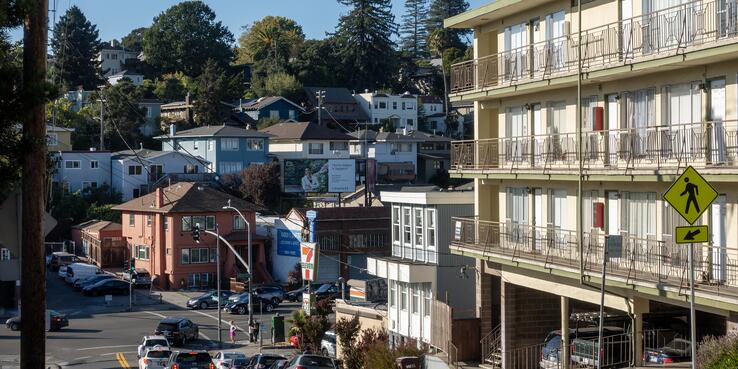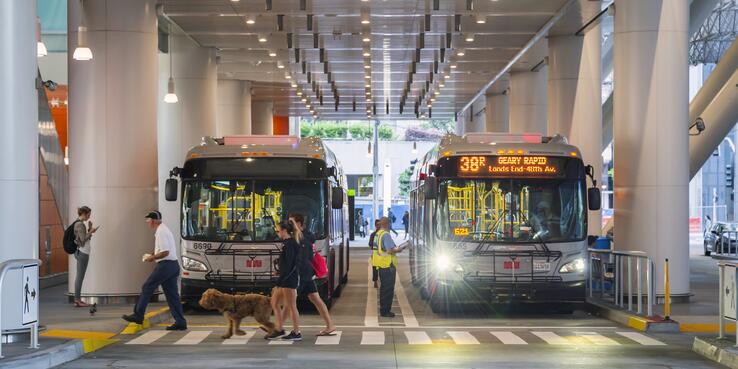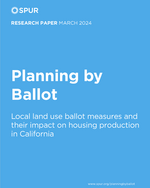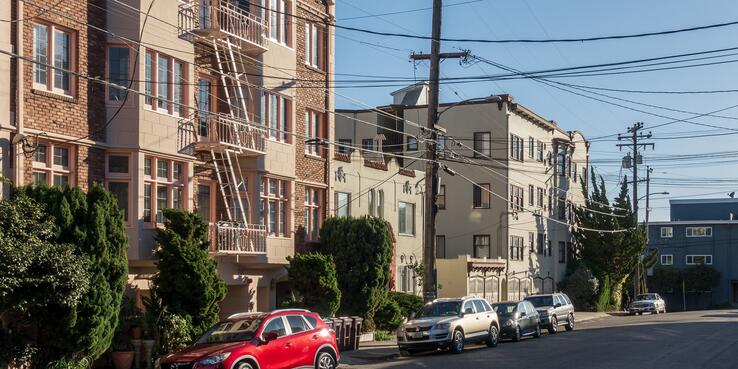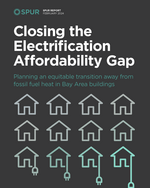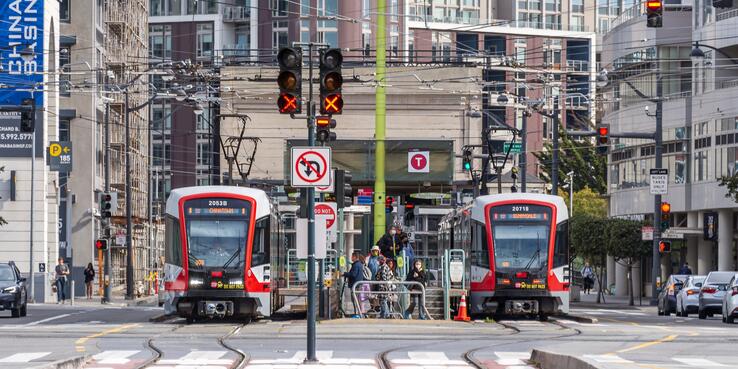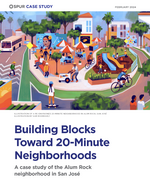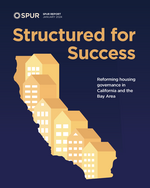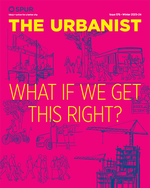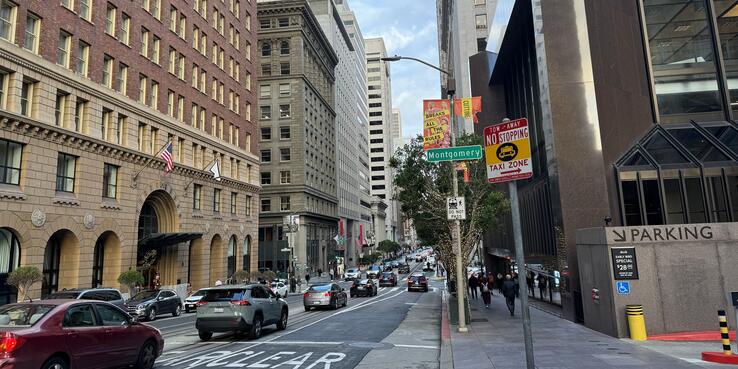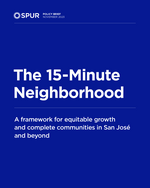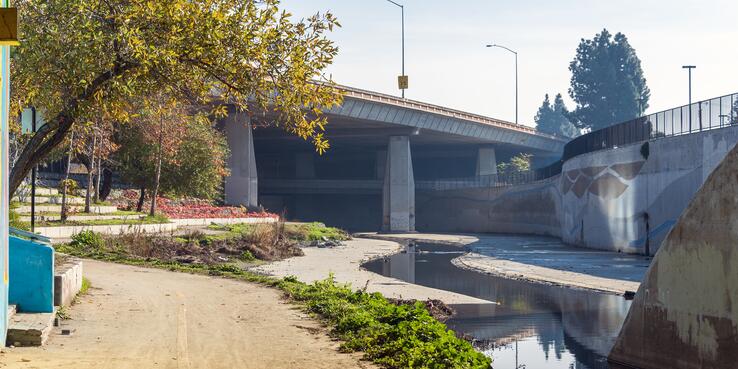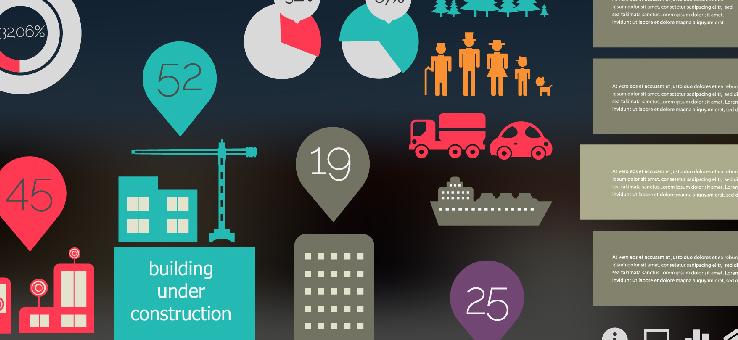
Welcome 2024–25 SPUR Board Directors and City Advisory Board Members
News / This month, 12 years after SPUR's regional expansion, the organization ushered in a new board governance structure. Our smaller, 30-member Board of Directors will provide fiduciary and strategic leadership to the organization in partnership with our three City Advisory Boards, which will support SPUR’s local research and advocacy efforts. These new appointees bring extensive knowledge in planning, housing, transportation, good government, economy, and sustainability and resilience.
SPUR Sponsors State Housing and Transportation Legislation
News / SPUR is co-sponsoring a number of state bills this year and lending advocacy support to many more. Our focus this legislative session is on designing safer streets and addressing California’s housing affordability and availability crisis. Here’s a look at the legislation we’re sponsoring.
Small and Mighty
Policy Brief San Francisco’s small businesses face multiple challenges: a notoriously complex regulatory environment, rising costs, and a slow economic recovery from the COVID-19 pandemic. The challenges are even more acute for small businesses in the downtown area, which has still not recovered its office and visitor customer base. SPUR’s new policy brief identifies seven interventions to support the small business sector in San Francisco.
Preparing for the “Big One” Amid a Housing Crisis
News / The Bay Area is already facing a housing crisis: Housing is unaffordable for low- and middle-income residents, development is not keeping up with demand, and in 2022 more than 30,000 people were unhoused. If a major earthquake were to hit the region, thousands of housing units could be lost, deepening the crisis. A recent event hosted by SPUR, the Structural Engineers Association of Northern California, and the Earthquake Engineering Research Institute highlighted the region’s earthquake-related displacement risks and opportunities to reduce them.
With a New Statewide Task Force, California Is Getting Real about Transit Transformation
News / SPUR has been appointed to serve on a statewide task force that will support the state’s many transit agencies to grow ridership, improve service, and address operational challenges. The effort represents California’s best opportunity to rethink transit policy in decades. As the state looks to lean heavily on transit to meet its ambitious climate commitments, it must figure out how to create a system both bigger and much more heavily used than today’s.
Remembering Joe Bodovitz
News / SPUR’s first deputy director, Joseph Bodovitz, died on March 9, 2024, at age 93, following a very influential career in public service and environmental protection. A remembrance by the Bay Conservation and Development Commission observed, “Nobody in the entire State of California was more influential in developing California’s coastal zone management policies than Joe Bodovitz.” And it all started at SPUR.
Planning by Ballot
Research SPUR has created the most up-to-date database of local land use ballot measures that impact housing production in California. Many of the 208 measures we identified curb urban sprawl and protect open space. But others undermine infill housing production in urbanized areas. Over the long term, measures that restrict infill housing can undermine housing affordability and have the potential to exacerbate racial segregation.
An Affordable Transition to Zero-Pollution, Climate-Friendly Homes in the Bay Area
News / A first-in-the-nation air quality standard for home heating equipment will dramatically improve the Bay Area's air quality, save lives, and help the state meet its climate goals. What will ensure that everyone can afford healthy, efficient, and carbon-free heat pumps? SPUR lays out how to use funding, financing, and market development to ensure heat pumps are affordable through 2027 and beyond.
Closing the Electrification Affordability Gap
SPUR Report New Bay Area regulations are ushering in a transition from gas furnaces and water heaters to electric-powered heat pumps, which heat air and water without emitting harmful pollutants, use far less energy, and would greatly reduce the region’s carbon emissions. A major challenge in adopting heat pumps is that, for now, they cost more to install. SPUR’s detailed action plan shows how incentives and electrical code changes can help the Bay Area make this transition affordable for low-income households.
A Regional Ballot Measure Could Sustain and Transform Bay Area Transit — But There Are Many Details to Get Right
News / The California State Legislature will soon consider legislation that would enable the Metropolitan Transportation Commission to put a regional transportation measure on a future ballot, potentially authorizing significant new funding for transit and other mobility investments. SPUR has not yet taken a formal position on a prospective measure, but we are weighing in now to ensure that any legislation that moves forward is grounded in good policy and positions the region for success at the ballot.
Q&A With Incoming State Housing Secretary Tomiquia Moss
News / This week, former SPUR board chair Tomiquia Moss began her new job as secretary of California’s Business, Consumer Services and Housing Agency (BCSH). SPUR is thrilled to support Tomiquia in her new role. We recently spoke with her about what she’s looking forward to working on as BCSH secretary.
Building Blocks Toward 20-Minute Neighborhoods
Policy Brief As a companion to our brief The 15-Minute Neighborhood , SPUR collaborated with SOM to develop a case study of San José’s Alum Rock neighborhood, exploring its potential to become a “20-minute neighborhood,” where residents can access many essential services and amenities just a short walk or bike ride from home. The case study draws upon work by San José State University’s urban planning studio and was supported by recommendations from local leaders and community-based organizations.
Solutions to California’s Housing Crisis Start With the State: Q&A With Sarah Karlinsky
News / In a new report, SPUR Research Director Sarah Karlinsky describes the alphabet soup of state agencies that influence housing development — with little to no coordination of efforts to address the state’s housing crisis. We spoke with Sarah about the report’s central insight: although zoning and planning are local actions, the only way to build the millions of housing units California desperately needs is through state-level reform.
Structured for Success
SPUR Report A key cause of California’s high housing costs is its decentralized and fragmented housing governance system. Multiple state and regional agencies, offices, departments, and systems are responsible for planning and funding housing. Add hundreds of cities, each with its own authority to zone for housing, and the complexity becomes dizzying. A new SPUR report makes 11 recommendations to set California and the Bay Area on the path to produce the housing we need.
What If We Get This Right?
The Urbanist / Winter 2024After a three-year hiatus, SPUR's member magazine is back!
Without Decisive Action, San Francisco’s Commercial Office Market Has a Looong Road to Recovery
News / Before the COVID-19 pandemic, San Francisco had the strongest of the country’s 14 largest office markets. Now it has the weakest. And SPUR projections show that it could take decades for the city’s office market to recover. The solution? Repurpose functionally obsolete class B and C office buildings to diversify downtown and accelerate the recovery.
15 Minutes to Everything: Q&A with Erika Pinto
News / The “15-minute neighborhood” concept promotes people-centered development as a way cities can improve convenience, affordability, and equity while decreasing air pollution and carbon emissions. In a new policy brief, SPUR Housing and Planning Policy Manager Erika Pinto explores how the 15-minute model could help improve and accelerate San José’s approach to planning for more compact and connected urban development. We spoke with Erika about 15-minute principles and planning for more complete communities.
The 15-Minute Neighborhood
Policy Brief The concept of the “15-minute neighborhood,” where residents can access essential, everyday services just a short walk or bike ride from home, has gained currency in recent years. San José’s plan to grow by building dense, mixed-use “urban villages” could guide the kind of development that would create 15-minute neighborhoods. SPUR suggests that San José could use the 15-minute framework to implement its urban village plan. We recommend six strategies to enable the creation of these more complete, connected, and equitable communities.
Five Ways San José Can Sustain Park Maintenance and Improvement: Lessons from Around the Country
News / Parks and public spaces are signifiers of civic vitality, and their maintenance, improvement, expansion, and programming often reflect the economic times. These activities can be made sustainable by re-examining place governance — how people and organizations across sectors collaborate to shape a place’s economic, physical, and social dynamics. As San José considers how to deliver on the promise of its public green spaces, it can look to other cities that have created or reformed place governance models.
Housing for the Sum of Us
News / This year’s Ideas + Action symposium explored the topic of housing policy beyond “zero sum” thinking , where some prosper at the expense of others. Keynote speaker Heather McGhee led an investigation into common conceptions of zero sum thinking, such as “policies that support renters harm homeowners” and “affordable housing leads to declining property values.” Our daylong conversation explored the role that racism plays in these debates and the shifts needed to create something different.



